Mr. Ta Hoang Linh, Director of Foreign Market Development Department ( Ministry of Industry and Trade ) - Photo: VGP/PT
At the regular press conference of the Ministry of Industry and Trade in the first quarter of 2025, informing reporters about the issuance of the Decree on reciprocal tax applied to imported goods into the country by US President Donald Trump on April 2, Mr. Ta Hoang Linh, Director of the Department of Foreign Market Development (Ministry of Industry and Trade) said that from April 5, the US will apply a 10% tax rate to all trading partners and apply individual reciprocal tax rates to a series of other countries from April 9, 2025, including a 46% tax on Vietnam.
Regarding this information, Mr. Ta Hoang Linh said that Vietnam is very concerned about the above decision of the United States. Vietnam is a country that has always persistently and consistently supported the multilateral trading system, based on the law, with the WTO playing a central role, to promote trade and investment, and at the same time effectively respond to global challenges.
Reality also shows that Vietnam and the United States are two complementary economies , the export and foreign trade structures of the two countries do not compete directly but complement each other, in accordance with the internal needs of each country. Vietnamese goods exported to the United States mainly compete with third countries, not directly with US enterprises in the US market. On the contrary, it also creates conditions for US consumers to use cheap Vietnamese goods.
In recent times, the Vietnamese Government and ministries and branches have organized meetings, listened to opinions and resolved a series of difficulties and problems, approved a number of investment projects of large US corporations and enterprises in Vietnam, issued Decree 73/2025/ND-CP amending and supplementing preferential import tax rates for a number of goods, thereby creating favorable conditions for market access for 13 groups of goods in which the US has a competitive advantage; strengthened management, inspection and supervision of the issuance of certificates of origin (C/O) to minimize the risk of illegal transshipment.
At the same time, the Government and ministries and sectors also widely consulted on the draft Decree on strategic trade control; answered and addressed concerns raised by the US Trade Representative (USTR) in 6 specific areas of US interest: Market access; agriculture; preventing anti-dumping and anti-subsidy tax evasion; intellectual property, digital trade; investment; labor.
According to Director Ta Hoang Linh, Vietnam's average MFN tax rate on imported goods is currently 9.4%. Therefore, the fact that the United States is assessing Vietnam to impose a 90% tax on US goods and the United States is imposing a tax of up to 46% on Vietnamese goods is really unfair, not reflecting Vietnam's goodwill and efforts over the past time in dealing with the trade deficit and building a harmonious and sustainable trade relationship between the two countries.
"The Ministry of Industry and Trade hopes that the United States will implement fair trade, expand discussion opportunities, and cooperate more closely to work towards an economic and trade cooperation framework that ensures tax benefits, opens markets for goods and services, and removes trade barriers... in line with the interests of both countries," Mr. Ta Hoang Linh emphasized.
Also according to Director Ta Hoang Linh, on the morning of April 3, after the United States announced the imposition of taxes, Minister of Industry and Trade Nguyen Hong Dien sent a diplomatic note requesting the United States to temporarily postpone the decision to impose the above taxes to take time to discuss and find a reasonable solution for both sides.
The Ministry of Industry and Trade is arranging a telephone conversation at the ministerial and technical levels with the Office of the United States Trade Representative (USTR) and the US Department of Commerce as soon as possible.
In the coming time, through the policy dialogue mechanism of the Vietnam - US Trade and Investment Council (TIFA), the Ministry of Industry and Trade will coordinate with relevant ministries and branches to maintain close exchanges with US partners, coordinate with the US to handle existing issues in bilateral economic and trade relations, as well as study appropriate economic and trade cooperation frameworks in the new situation, serving the interests of the business communities of the two countries.
No change in export target
At the press conference, Deputy Minister of Industry and Trade Nguyen Sinh Nhat Tan also said that immediately after the US imposed reciprocal tariffs, the Minister of Industry and Trade sent a diplomatic note, as well as used various channels to arrange a phone call with his counterpart, the US Trade Representative, to continue negotiations. The goal is to explain more clearly policies, import-export management, tax issues, etc.
The Deputy Minister of Industry and Trade also affirmed that, in the face of the impact of the reciprocal tax, the priority focus at this time is to discuss solutions to cope. Therefore, growth targets, import-export, investment... will not be discussed and the set growth target will not be changed.
"Following the Prime Minister's direction, we have not discussed changing growth, export and import targets with a calm and comprehensive view," said Deputy Minister Nguyen Sinh Nhat Tan.
Taking advantage of FTAs to diversify markets
Also at the press conference, answering questions from reporters regarding the US imposing reciprocal tariffs on Vietnamese goods as well as solutions deployed by the Ministry of Industry and Trade to support businesses and industries, Mr. Ta Hoang Linh said that the Ministry of Industry and Trade is promoting solutions to diversify export markets.
With 17 signed FTAs, Vietnam is the country with the largest number of FTAs and thanks to that, in recent years, Vietnam's exports have grown remarkably with nearly 800 billion USD.
Enterprises with sufficient energy are encouraged to take advantage of demanding markets such as the United States and the EU, which require high quality standards and large export shipments. Through the national trade promotion program, the Ministry has actively supported this group of enterprises.
For small and medium enterprises with little export experience, the Ministry supports training and provides market information so that goods meet technical standards and consumer tastes. The Ministry has a training program to guide FTA implementation, organizes forums and seminars to provide information to enterprises.
To exploit FTAs, it is necessary to meet the rules of origin and the Ministry has provided guidance to support businesses on this issue. At the same time, the Ministry also promotes FTA negotiations with other countries, but Vietnam does not negotiate FTAs with all countries. Discussions and negotiations are based on feasibility studies to see which products can be opened, helping businesses benefit.
Some groups of goods are exempted from reciprocal tariffs, including: Group (1): Items subject to tariffs under Section 50 USC 1702(b); Group (2): Steel, aluminum, automobiles, and automobile parts already subject to tariffs under Section 232[1]. Accordingly, the applied tariff rate is 25%; Group (3): Copper, pharmaceuticals, semiconductors, and lumber; Group (4): Items that may be subject to tariffs under Section 232 in the future; Group (5): Precious metals; Group (6): Energy and certain minerals that the United States does not have.
Phan Trang
Source: https://baochinhphu.vn/bo-cong-thuong-tap-trung-thao-go-kho-khan-ve-thue-doi-ung-khong-thay-doi-muc-tieu-xuat-khau-nam-2025-102250404170753328.htm


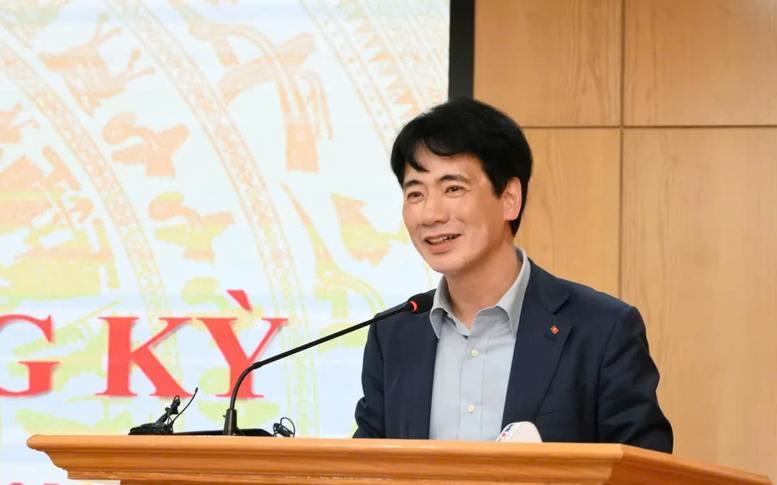

![[Photo] Anh Hoang - Dinh Duc successfully defended the men's doubles championship of the National Table Tennis Championship of Nhan Dan Newspaper](https://vphoto.vietnam.vn/thumb/1200x675/vietnam/resource/IMAGE/2025/5/23/d6ab3bcac02c49928b38c729d795cac6)

![[Photo] Top players gather at the 2025 Nhan Dan Newspaper National Table Tennis Championship](https://vphoto.vietnam.vn/thumb/1200x675/vietnam/resource/IMAGE/2025/5/23/9ad5f6f4faf146b08335e5c446edb107)






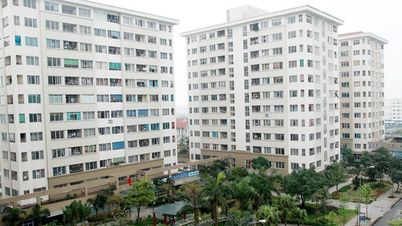
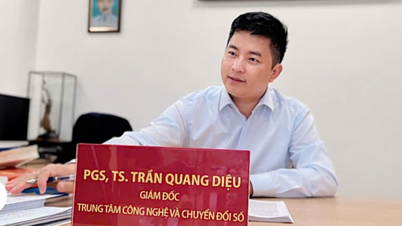

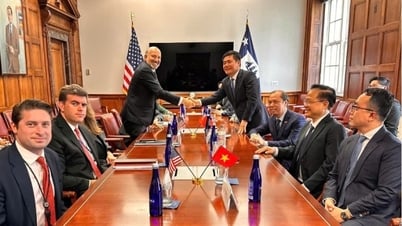







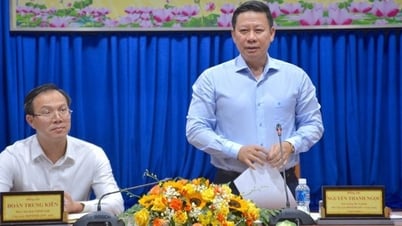
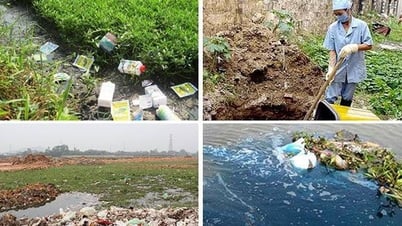

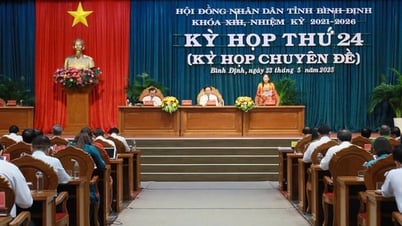
















































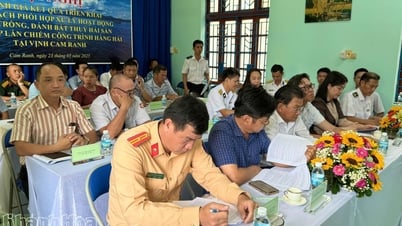

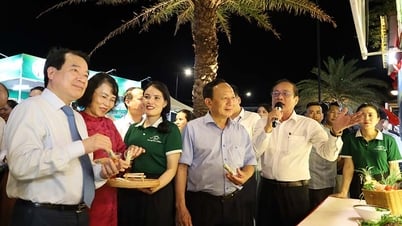

















Comment (0)